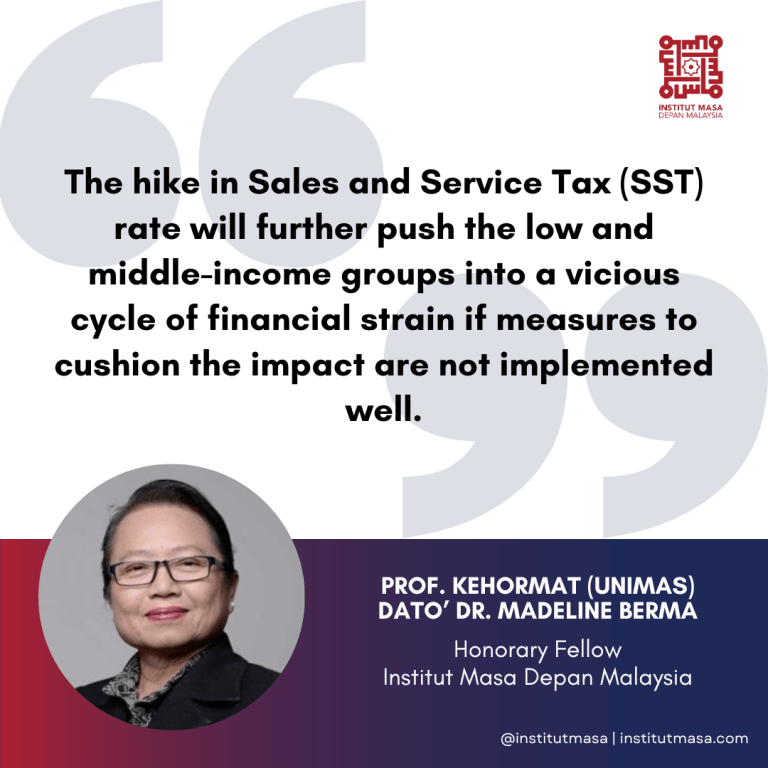KUCHING (March 8): The hike in Sales and Service Tax (SST) rate will further push the low and middle-income groups into a vicious cycle of financial strain if measures to cushion the impact are not implemented well, says Datuk Dr Madeline Berma.
The SST hike roughly translates into RM9, RM16 and RM30 monthly increase in household expenditure of the B40, M40 and T20 expenditure groups, said the Senior Fellow of the Malaysian Future Institute (Masa).
This, she said, is based on the Department of Statistics’ household expenditure survey in Malaysia in 2022.
“The B40 and M40 households who have lower spending power will be the ones bearing the brunt,” Dr Madeline told The Borneo Post.
“Although the high-income group may not feel much of the impact, the compounding effect from the SST will have an adverse effect on their business operating costs due to the increase in sales tax for logistics.
The rising operating costs in logistics due to inflation, she said, will inevitably affect the price of goods and will give an impact to the end users.
“Although the food and beverages (F&B), and telecommunication sectors are exempted from the eight per cent SST, the retail prices in these F&B outlets will increase due to the hike in sales tax for logistics.
“This is because the SST increase will affect the food supply chain – including the importers, distributors, logistics companies, retail property owners and eventually the price of food,” she explained.
During the tabling of Budget 2024, she said the government had announced the revision of SST from its previous 6 per cent to 8 per cent effective March 1, excluding services such as F&B and telecommunication services, to generate RM3.45 billion additional revenue.
Dr Madeline, however, pointed out that many consumers are unaware of the underlying problems or the downside of the compound effect of SST.
“The price of goods at retail stores could be more than a two per cent price increase, to which sales tax is to be collected at the manufacturer’s level while the 8 per cent service tax is to be borne by the consumers – be it business or individual,” she said.
“Being a final tax in nature – meaning that businesses do not get to claim a credit for incurring it, it creates a tax-on-tax effect along the supply chain.
“This essentially means consumers are paying for a higher service tax, incurred by the businesses. This effect is especially apparent in the service tax,” she explained.
She, however, acknowledged that the revised tax is an urgent move to narrow Malaysia’s fiscal deficit as the country needed to collect more consumption tax due to the reduction in income tax rates for the M40 group.
“The SST adjustment is expected to generate an additional RM2 to RM3 billion, and the generated revenue will represent 11.8 per cent of the Gross Domestic Product (GDP),” she said.
Despite the nation’s long-term economic plans, Dr Madeline further asserted that the government must embark on initiatives to help the vulnerable groups who are affected the most by the tax implementation and the rising cost of living.
“To alleviate the strain on low-income households, the government must ensure that the burden of the tax hike is not unfairly shouldered by these vulnerable groups,” she stressed.
#MASAuntukMakmurBersama
